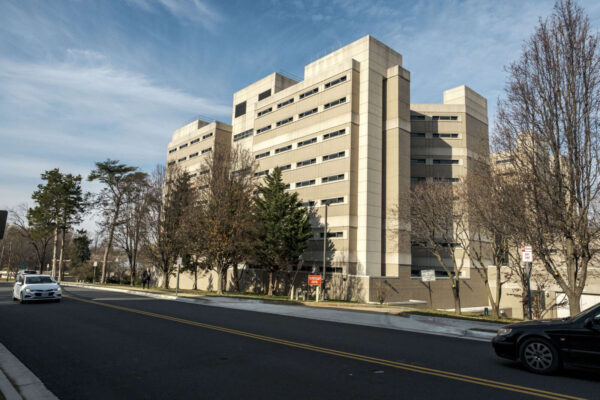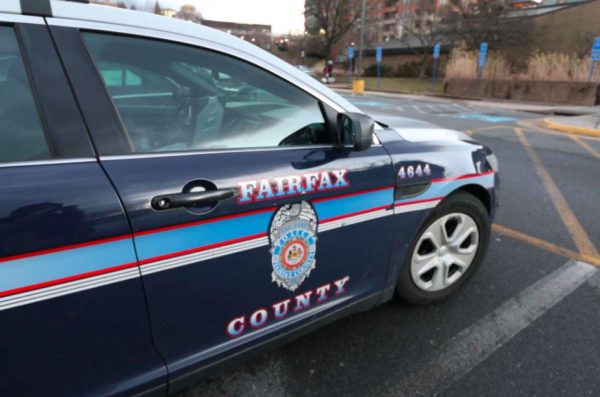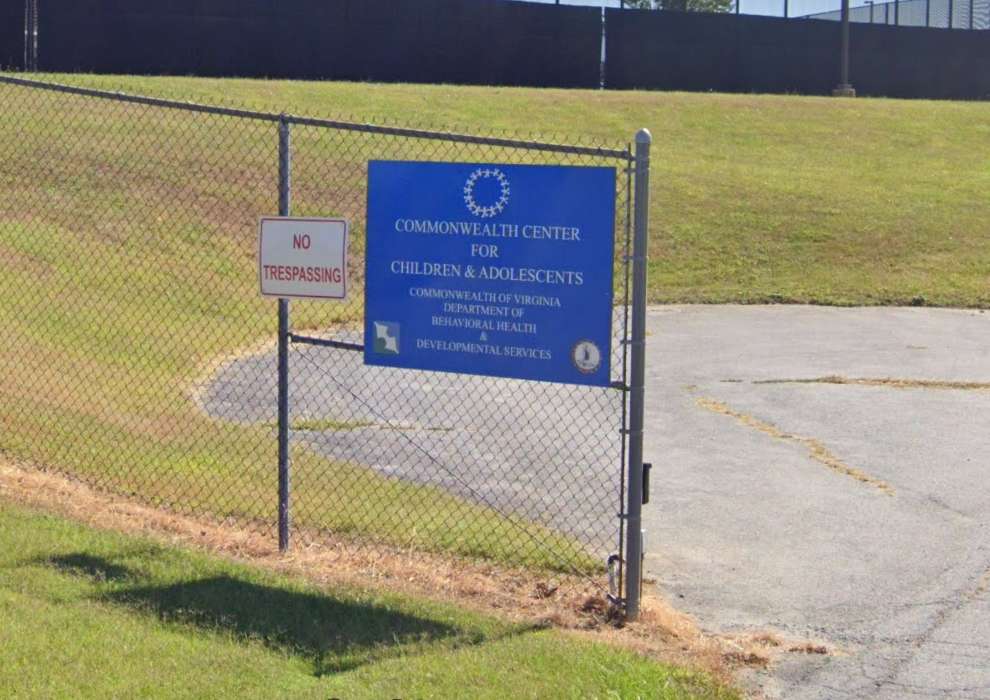
As Virginia’s one state psychiatric hospital for youth continues to face bed shortages, additional regional youth mental health services could provide relief to kids and teens in Fairfax County.
While there are options for adults, Northern Virginia doesn’t have any crisis stabilization facilities for youth, according to Daryl Washington, executive director of the Fairfax-Falls Church Community Services Board, which provides mental health, substance use and disability services.
A crisis stabilization facility would provide an alternative to hospitalization, while making it easier for youth to receive psychiatric care close to home.
“It has many of the same services that a hospital would have where they have nursing staff, counselors, therapists and prescribers that can prescribe medication that are available 24 hours a day, seven days a week,” Washington said.
As Washington told the Fairfax County Board of Supervisors last month, there’s no formally committed state funding or a public timeline for a regional facility, whichwould be developed in collaboration with other Northern Virginia counties.
However, state budget amendments approved in September include $58 million to enhance and modernize comprehensive crisis services, and CSB staff, along with county building experts, have toured possible locations.
Plans to build out regional youth crisis services come amid a national shortage of behavioral healthcare workers and challenges with state psychiatric beds in Virginia. The only youth state hospital — the Commonwealth Center for Children and Adolescents in Staunton — is not operating at its 48-bed capacity.
“In fiscal [year] 2019, we were able to get 154 kids admitted to the youth state hospital, but last year there was only enough availability where we could get 41 admitted,” Washington said.
On top of that, Washington says the Staunton hospital recently faced challenges in maintaining its accreditation from the Joint Commission, receiving three preliminary denials between May and July before reaching accredited status in September. That status was confirmed with a follow-up survey in October.
FFXnow contacted a Virginia Department of Behavioral Health and Developmental Services spokesperson for comment but didn’t receive a response by press time.
Although the county also sends youth to local private hospitals, only some of them accept kids, and the wait time for a psychiatric bed can be long, according to Washington
“Last fiscal year, we had 139 kids that had to wait eight hours or longer to find a hospital bed,” he told FFXnow. “For the Northern Virginia region, it was 332 kids that had to wait eight hours or longer before we could locate a hospital bed for them.”
In some cases, the state hospital is a better fit for care. When a private hospital is appropriate, keeping kids local is preferable, Washington said.
“If we have a youth in our community, our number one goal is to try to get them care as close to home as possible,” Washington said. “You almost always get better outcomes when you can provide services and treatment as close to home as possible.”
Elsewhere in the state, a 12-bed crisis stabilization unit for youth recently opened in Wythe County.
“It’s a new service that the state is wanting to stand up and expand, but it just takes time to build that infrastructure and level of care,” Washington said.
Image via Google Maps
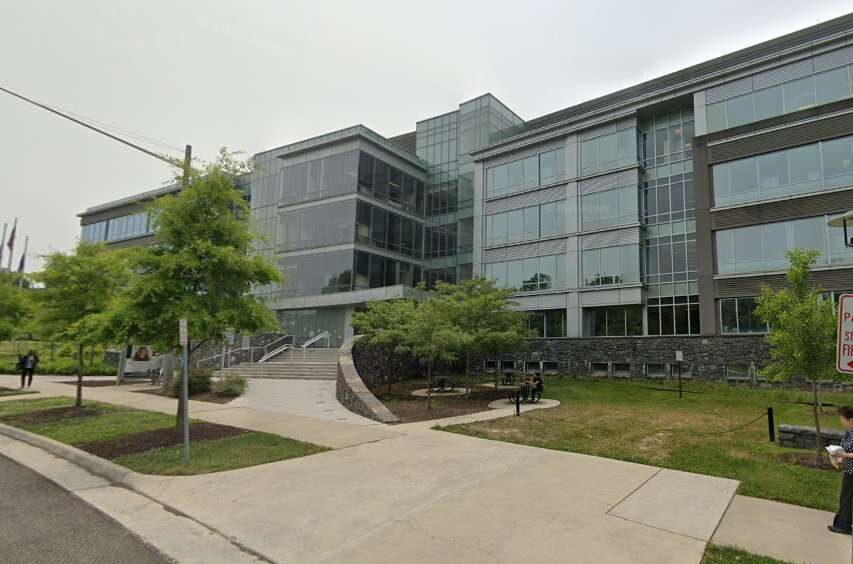
The Fairfax-Falls Church Community Services Board will have more money for mental health services, thanks to recent state budget amendments.
The CSB provides services related to mental health, substance use and developmental disabilities. Additional funding could include $2.5 million to cover both staff pay increases and the state’s program to standardize behavioral health community services (STEP-VA).
“We’re kind of getting geared up for all of these great new resources coming, but…me and my staff will be quite busy over the next half year to a year with making sure we get all of these things stood up,” Fairfax-Falls Church CSB Executive Director Daryl Washington told the Board of Supervisors health and human services committee on Oct. 17.
Northern Virginia is likely to receive about 20% of the $78 million allocated for regional initiatives, Washington said.
Washington also told the committee there are five staff vacancies in the CSB’s youth outpatient unit, down from more than three times that at the height of the pandemic. Still, those vacancies make it challenging for the board to meet its goal timeline in assigning youth to treatment, he said.
The CSB would ideally make assignments within 14 calendar days or 10 business days of a youth’s initial assessment. After that point, statistics have shown that people are less likely show up to an ongoing therapy program, Washington said.
“Those five vacancies represent around 125 youth being served at any one point in time,” Washington said. “I really think, if we were fully staffed with those five, that we would be hitting our goal based upon the additional youth that we’d be able to serve.”
The CSB is also looking for an appropriate location to build a regional program that would be licensed as a medically-managed detox center, a youth crisis stabilization center, a youth substance abuse treatment center and a type of youth group home aftercare center, Washington said.
This facility could provide a long-term alternative to Virginia’s one youth state hospital, according to Washington.
“Quite frankly, I don’t know if the youth state hospital is the best place for folks to receive care at right now anyway,” he said. “We really try to focus on getting our youth at some of our local private hospitals whenever we can. I think that’s going to be a multi-year issue that’s not going to go away and that finding some type of either regional or local solution that’s going to work for our kids is probably the better long-term solution for us to go with.”
The closure of several state psychiatric hospitals in 2021 has also created a widespread shortage of beds for adults in crisis. In its most recent annual report, the Fairfax-Falls Church CSB said it had 1,353 individuals waiting in emergency rooms for as long as six days due to a lack of psychiatric inpatient beds.
The 2022 Fairfax County Youth Survey, which was released last month, found declines from 2021 in the percentages of 8th, 10th and 12th grade students who reported stress, depressive symptoms, suicidal ideation and suicide attempts, though Washington said there’s still work to be done. Read More
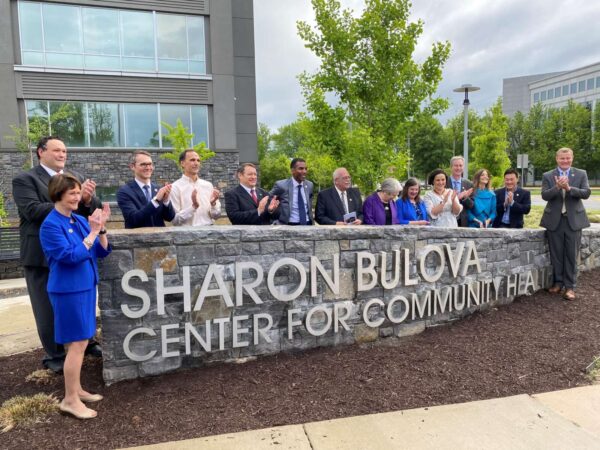
Fairfax County’s Merrifield Center has a new, slightly more descriptive name.
The Sharon Bulova Center for Community Health was officially christened at a dedication ceremony yesterday (Thursday), taking its name from the former Board of Supervisors chairman who helped develop the Diversion First initiative aimed at shifting people with mental health and substance use challenges to treatment instead of incarceration.
“Sharon is more than a mentor, she is a friend, and her legacy to Fairfax County is unmatched,” said current Board of Supervisors Chairman Jeff McKay, Bulova’s successor. “It is entirely fitting that this center, which is at the heart of our Diversion First initiative, is named in her honor.”
Located at 8221 Willow Oaks Corporate Drive, the facility opened in March 2015 to serve as a central hub for the Fairfax-Falls Church Community Services Board, which provides emergency services and other supports for people who have mental illnesses, substance use disorders, and developmental disabilities.
As the board chairman from 2010 to 2020, Bulova oversaw Diversion First’s launch in 2016 as an effort to rethink the county’s approach to mental health after a police officer shot and killed Springfield resident John Geer in 2013 and sheriff’s deputies restrained and stunned Natasha McKenna, resulting in her death in 2015.
“It was their tragic deaths that sparked change,” Bulova said, acknowledging that it was a “pretty tense” time in the county. “Both incidents shown a stark light on the county’s need for reforms and policies regarding transparency, oversight, use of force, and criminal incident response, including and especially in cases involving persons suffering from mental illnesses.”
Focused on people involved in the criminal justice system for non-violent offenses, the initiative started primarily as a partnership between the CSB, police, and sheriff’s office. It has since expanded to include housing assistance and specialty veteran, mental health, and drug court dockets to address the specific needs of those populations.
Per a news release from McKay’s office:
Diversion First is designed to prevent repeat encounters with the criminal justice system, improve public safety, promote a healthier community and is a more cost effective and efficient use of public funding.
Since its founding in 2016, there have been more than 12,000 law enforcement transports to the now-Bulova Center where the Diversion First program is located. Over 8,600 people were under an emergency custody order and 3,540 additional transports were because an officer recognized that an individual in the community needed behavioral health services. Over 2,600 have been diverted from potential arrest. Of those transported to the MCRC by law enforcement, on average 80% do not have a repeat visit to the MCRC related to criminal justice involvement within a year. Over 80% of those diverted from potential arrest in 2019 were not incarcerated during the following year.
“Diversion First is a revolutionary concept that was and remains ahead of its time,” McKay said. “This remarkable facility and its community impact on a daily basis are a testament to the type of change that forward-thinking, innovative local government involvement can make.”
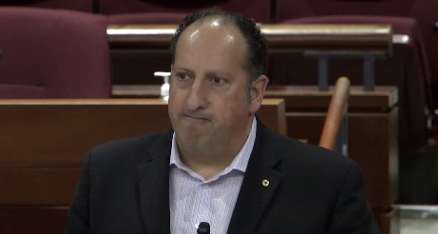
The Fairfax County Sheriff’s Office has 71 vacancies. There are over 200 vacancies at the Fairfax-Falls Church Community Services Board. And that’s not all.
Staff vacancies continue to be a challenge at county agencies across the board, administrators and employee leaders told the Board of Supervisors at budget hearings last week.
“Staffing shortages particularly impact vulnerable populations and lead to increased waiting times for services,” CSB Member-at-Large Anne Whipple said at a hearing on Thursday (April 14).
The county’s proposed budget for fiscal year 2023, which begins July 1, adds 10 positions at the mental health services provider, bringing its total to 1,095 positions if all are filled, but it’s still facing significant shortages.
The advertised budget includes 4.01% raises through market rate adjustments as well as additional merit and performance increases. Uniformed public safety workers also get a 25-year longevity bump.
The county’s $4.8 billion general fund budget includes $79.26 million in unallocated funds and an additional $83 million from vehicle taxes due to soaring market values. County leaders have indicated that some of that money could be used to provide tax relief.
Ron Kuley, president of the Fairfax County Professional Fire Fighters and Paramedics union, asked the board for an additional 4% salary increase for firefighter through lieutenant ranks, costing $6.7 million.
“This would greatly, greatly benefit with the recruitment and retention efforts and would keep us more in line with our comparative jurisdictions,” he said during Thursday’s budget hearing.
He said that’s more important than adding a 25-year longevity step increase, suggesting that the board redirect the $768,000 allocated to the step increase to the raise request.
Kuley said nearly 55 firefighters have left for neighboring jurisdictions in the last two years.
Calls for the county to increase compensation for its workers have also come from unions representing educators and general county employees, who cited inflation, housing costs, and other challenges that make it difficult for them to live in the county.
People can still submit written testimony until April 26, when the Board of Supervisors is scheduled to mark up the budget. The board will adopt a final budget on May 10.
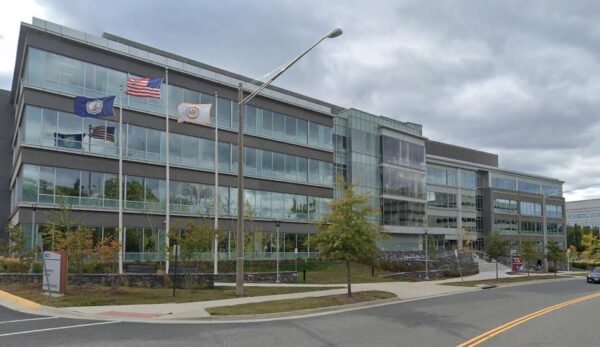
Job vacancies at the Fairfax-Falls Church Community Services Board, which provides mental health, substance use and developmental disability services, have more than doubled since January 2021.
The CSB reported last week that the 193 vacancies have led it to consolidate two programs in recent months: a partial hospitalization program and New Generations, a treatment program for mothers and pregnant women. In January 2021, there were 91 vacancies.
“We do have some challenges in getting people into services as quickly as we would like to,” CSB Deputy Director of Clinical Operations Lyn Tomlinson said.
The vacancies come as the COVID-19 pandemic has increased needs for mental health patients, but several factors are involved, including a “nationwide shortage of behavioral health care professionals,” according to Daryl Washington, the executive director of the Fairfax-Falls Church CSB.
Like in other professions, the worker shortage has been driven by burnout from the pandemic and compensation, among other factors, a National Council for Mental Wellbeing survey found last fall.
The number of graduates is also not keeping up with those retiring.
A January 2022 report by the Virginia Health Care Foundation found that, even though the state has 40 graduate-level behavioral health programs that produce nearly 800 graduates annually, not enough of them become licensed “to maintain even the current inadequate supply” of professionals.
“The workforce shortages that existed in the Commonwealth and in each of the five licensed [behavioral health] professionals before the pandemic have been exacerbated exponentially,” the report said.
Washington said it may take years to resolve and affect the region for the next decade.
The Fairfax-Falls Church CSB currently employs around 1,100 merit staff and a few hundred more part-time staff. Needs include case managers, a position that requires an undergrad degree in a human services field, and social workers, who must have a master’s degree and supervised experience.
County Executive Bryan Hill has proposed a 4% raise for workers across the board in the Fairfax County’s upcoming budget, plus additional increases, after pay froze during the pandemic. The Board of Supervisors is slated to adopt the budget May 10.
The proposed budget adds four CSB positions for the county’s Diversion First efforts, 4.5 positions for its residential treatment and detoxification services, and one position for emergency services, Washington said.
The budget also allocates money to fund a coresponder program involving 17 CSB positions and money for police positions.
Washington said he’s already spoken to staff who feel the increases were enough to encourage them to stay. He’s optimistic that the proposed salary changes will help with retention and recruitment.
“I really think that that’s going to make us much more competitive in the job market,” he said. “Salaries have really accelerated during the time of the pandemic, like I’ve not seen in my 25-year career before.”
Photo via Google Maps
Fairfax County’s approach to criminal justice is quite different from when public defender Bryan Kennedy started his job here a decade ago.
In 2010, the county housed 1,207 people in its jail. That population has been nearly halved, down to 667 people in 2020, according to 2020 Census data compiled by The Marshall Project.
Going back further, the county’s inmate population was 3,749 people in 2000. But the changes from 2000-2010 involved the 2001 closure of the Lorton Reformatory, which housed over 2,800 people as of Dec. 31, 1999 and had its inmates moved to other facilities across Virginia and the federal prison system.
More recently, policy and cultural changes have dramatically altered the county’s judicial system, according to Kennedy, who also belongs to the criminal justice reform group Justice Forward Virginia.
“Ten years ago judges sentenced people to jail much more frequently on low level charges (both misdemeanors and felonies), including misdemeanors like possession of marijuana and driving on a suspended license,” Kennedy said in an email. “People were also held pretrial and held on secured bonds (cash bonds) that they could not afford much more frequently.”
After taking office in 2020 as one of three new progressive prosecutors in Northern Virginia, current Commonwealth’s Attorney Steve Descano ended the use of cash bail and stopped prosecuting simple marijuana possession cases prior to the state’s legalization, though future reform efforts could be challenged by Virginia’s incoming Republican administration.
Kennedy told FFXnow that the judicial system is now more receptive to alternatives to incarceration, as judges and prosecutors feel more comfortable not placing people in jail, because those individuals are getting more services outside of jail.
County Adopts Diversion Framework
One possible driving force behind the decline in Fairfax County’s incarcerated population in the last decade is its Diversion First policy, which began in 2016 after Natasha McKenna’s death at the Fairfax County Adult Detention Center in February 2015.
The initiative aims to reduce the incarceration of people with mental health and substance use issues, as well as intellectual and developmental disabilities, by directing those arrested for nonviolent offenses to services instead of jail, which the county says is less costly. Read More
(Updated at 12:05 p.m. on 9/30/2021) Fairfax County will resume an effort today (Wednesday) to avoid arresting people in mental health crises by using behavioral health experts in the hopes of eventually putting the service into effect 24/7.
Pairing a crisis intervention specialist with specially trained police officers, the “co-responder” teams address 911 calls related to behavioral health issues for the resumed service, a micropilot program that’s expected to be in place three days a week.
“Over time, we’re going to have a better sense of handling these types of calls, and we might get to a place where we don’t have to have both behavioral health and police at the same time,” said Lee District Supervisor Rodney Lusk, chair of the Fairfax County Board of Supervisors’ Public Safety Committee.
The county initially tested the approach for over a month this past March with teams working in eight-hour shifts Wednesdays through Fridays, ultimately diverting 40% of incidents from potential arrest or hospitalization.
One such case involved a family situation between siblings, where an autistic man assaulted his adult sister, said Abbey May, emergency and crisis services director for the Fairfax-Falls Church Community Services Board (CSB), which provides multiple mobile emergency response services, among other health supports.
“She had locked herself in the bathroom and reported her brother had slipped a knife under the door to intimidate her,” May said.
A co-responder team gathered critical information from talking to the woman, asking what calms her brother down and what makes him upset. The responders explained that they were there to help.
“They were able to successfully de-escalate the situation without the use of force, incarceration, or hospitalization,” May told the Board of Supervisors yesterday (Tuesday) at its public safety committee meeting.
To support the resumed micropilot program, the CSB is reallocating one of its two Mobile Crisis Units. The pairings with police will continue on a limited basis, and it’s unclear how long the initiative will last this time, but it could serve as a bridge to an expanded service, said Lisa Potter, director of the county’s Diversion First program.
The county’s effort to reform how it responds to certain 911 calls comes after Virginia adopted a law last year creating a Marcus Alert system.
Named after high school biology teacher Marcus-David Peters, who was killed by a police officer while experiencing a mental health crisis in 2018, the statewide system is designed to ensure behavioral health experts are involved in emergency responses related to mental health and substance use issues.
According to Lauren Cunningham, communications director for the Virginia Department of Behavioral Health and Developmental Services, the law requires every local CSB to establish either a mobile crisis team or a community care team by July 1, 2026, though as the state’s most populous locality, Fairfax County must have its program set up by July 1, 2023.
As defined by the bill, a mobile crisis team can consist of one or more qualified or licensed mental health professionals, including peer recovery specialists and family support partner, but it explicitly does not involve law enforcement, Cunningham says.
Community care teams, on the other hand, are composed of mental health service providers and can include law enforcement officers. A co-responder model like the one Fairfax County is developing would fall under this approach.
Fairfax County could use its American Rescue Plan Act money to fund an expansion of the micropilot. County leaders have identified a multi-pronged approach that includes having an officer and crisis intervention specialist travel and respond together in teams that would each cover two police districts.
The $4 million ARPA-funded proposal would create four co-responder teams in the field and cover 26 positions — which would include 10 crisis intervention specialists, eight police officers, and other staff — as well as vehicles and other equipment.
While other mental health efforts help divert unnecessary arrests and jailing, the co-responder approach provides real-time 911 responses, May said. Diversion First leaders have pressed to eventually make the effort available around the clock.


